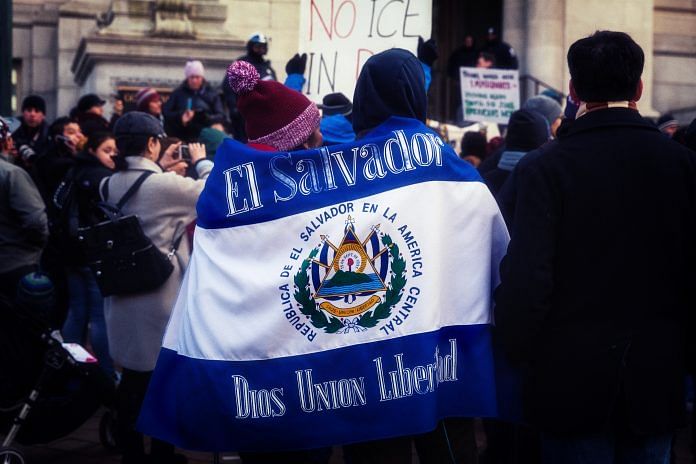Mohammad bin Salman, the Crown Prince of Saudi Arabia, dominated global headlines in 2017 with his revolutionary changes— but world thinkers agree that he could have handled corruption better. Italy goes to polls in March, but the elections seem even more sketchy with new electoral reforms being introduced in just October, 2017. Meanwhile, the Trump administration is about to deport thousands of immigrants from El Salvador, showcasing yet another weak policy in his scandalous presidency.
The playbook on tackling corruption
Calling the anti-corruption campaign “deeply flawed”, Jamal Khashoggi writes in the Washington Post that Mohammad bin Salman’s highly visible actions aren’t really solving the root of the problem in Saudi Arabia: the deep entrenchment of corruption in the state, present in both its business and royal DNA.
“South Korea handled corruption much differently. The presidential trial played out in public with a court delivering the verdict. The businesses involved were insulated from the ousting of President Park and her government. Their day-to-day financial operations and profitability were not impacted. Following the ousting of President Park, South Korea’s top regulator even issued a statement stating Park’s departure would not impact market stability,” he writes.
Yet, there seems to be no separation between businessmen and princes when it comes to discerning corruption. “Let Saudi Crown Prince Mohammed bin Salman take what he wants from the princes. They add nothing to the national economy. The princes constitute a financial and moral burden on the state. Yet it is critical that he distinguish between the wealth attained by legitimate businessmen and the wealth that pervades the royal family.”
“If Mohammed bin Salman wants to deal properly with corruption, he must preserve two elements vital to the Saudi economy: trust in the state and the role of national companies.”
“New laws must be drafted that both define and prevent corruption from reoccurring, especially laws that will keep Royals away from business, unless they give up their titles, stipend and, more importantly, their government positions. Fighting corruption is complicated, but it is essential that Mohammed bin Salman’s actions be more transparent, for the sake of Saudi Arabia,” he advises.
A cruel decision
President Trump’s decision to deport 200,000 immigrants from El Salvador back to a country they barely know is “a reminder of how bad our current immigrant system is — and how badly it needs to be overhauled,”writes David Leonhardt in the New York Times.
“One of the more frustrating aspects of this decision is that the Trump administration can defend its cruelty with legal explanations that have a ring of rationality. Those explanations may not sway liberals or immigrant advocates, but they are real weapons in the battle for public opinion. The administration is able to point out that the status quo is built on a series of fictions,” he writes.
The administration’s rhetoric behind deporting these immigrants is on the basis of a 2001 earthquake that happened after most of the immigrants had already moved to the United States.
“So long as our immigration system is built on contortions of logic like these, it will be vulnerable to Trump-style cruelty that’s then justified on the basis of common-sense law enforcement. And these justifications will, unfortunately, reduce some of the outrage that follows.”
“They deserve to remain in this country. They — and the rest of us — also deserve to live in a country that has a reality-based immigration system. It should be one with a path to citizenship for longtime residents, rather than one that depends on the kindness of presidents and has a patchwork of rules that don’t mean what they say,” argues Leonhardt.
Manifesto for the future
The Italian general election will take place in less than two months, but the government seems to have no real vision for the future, writes Tim Parks in Politico.
The vying factions all seem to have lost momentum, with no real front-runner. Former Prime Minster, Matteo Renzi, who heads the Democratic Party, isn’t the popular force he once was. The main part of the right, Forza Italia which is headed by Silvio Berlusconi, is also floundering. (Berlusconi has been banned from contesting because of corruption charges.) Its future depends on the alliance it strikes up with one of the other large parties, the Northern Alliance. Finally, the front-runner looks to be the popular 5Star Movement, a grassroots movement headed by the comedian-turned-politician Beppe Grillo. However, it is not clear what a government headed by him would actually do.
What further obfuscates matters is a new electoral law passed in October 2017, described by Parks as “a madly complex, committee-concocted fudge.” The only thing that, according to him, it seems to guarantee as of now is a highly fragmented parliament.
“More idealistic voters will be attracted to the numerous breakaway parties, fragments and special causes typical of Italian political life. As in all election campaigns, here there is more talk about who is leaving whom or joining whom, or allying with whom, than actual policies, and more imagination dedicated to thinking up new names and symbols for parties, movements and eventual coalitions, than to devising clearly articulated policies that might actually get the country moving again,” he writes.
Parks refers to the wave of right-wing hypernationalism sweeping across Europe, and notes its lack in Italy. “There has been much condemnation of populist and nationalist views and parties in the U.K., France, Austria and the Netherlands. Considering how long Italy has been in economic decline, it is surprising how little nationalism there is here, and how superficial and merely rhetorical it is when expressed.”
“No one and no party is getting across a coherent positive vision that people might wish to unite around. No one appears to have any idea of a future that does not amount to muddling through or settling scores. If this is democracy in the twilight of the nation state, it is gloomy, dull and potentially dangerous,” he writes.



